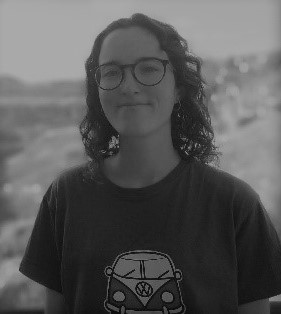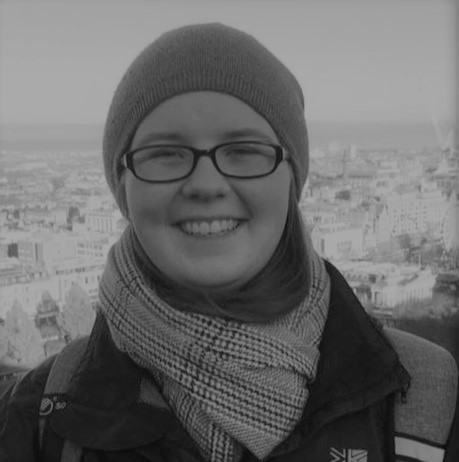
In this post for September’s theme on the “Student experience of learning remotely and digitally”, Ana Diaz Vidal and Jessica O’Loughlin offer profound reflections on what the few months of lockdown taught them: from navigating the fine line between independence and isolation to developing an awareness on procrastination…
I am a student, I went through a pandemic and I was lucky.
I am from Valencia, Spain so I was not surprised when, around the 17th of March, all in-person academic activity was suspended. As I was not in my honours years, my exams were cancelled and I was left with nothing to do in Edinburgh and the risk of not being able to return home, as Spain was closing its borders. I decided to return, only to be under one of the strictest lockdowns in the world. 48 days of not leaving the flat at all except for essential shopping and over 100 days where we could only go outside during designated time periods. I was in a good position: I was with my family, we were healthy, both of my parents worked and our pantry was full – except for flour, there was a baking fever and it was as rare as gold for a while – but still those were hard days.
At this point I got an email about doing an interview for an Employ.Ed internship I had applied to long ago. I prepared for it. I had only done interviews for jobs in hospitality and, in addition to that, it was to be held online, which made it more daunting. I thought it went well but, again, I had no previous experience and online interviews feel a bit impersonal.
I wanted to DO something to help but not doing anything was the best I could do. I compulsively checked infection rates and news about COVID-19 which led to anxiety. After a week of disconnection from university work, I felt a bit lost and without purpose. I tried running in the garage, in an attempt to recreate the feeling of freedom that running outside gave me. I also tried to learn. I decided to take up a couple of MOOCs on topics that I had always been interested in but had never had time to engage with fully.
From there I started a routine: I would wake up, do some exercise, do my courses, read, cook and sometimes meet friends online (online Pub Quizzes are great). The highlight of my week was grocery shopping, when I got to go outside. However, motivation started to decrease as the situation no longer felt new and became a bit helpless in terms of the impact it was having on some people.
In May, we could leave our houses for short time periods and in June, I started the internship I had been interviewed for. I had been selected! However, it was not meant to be a conventional experience, I would, like almost everyone in the world, work remotely.
I found working from home a distinct experience. As restrictions were eased, I really enjoyed spending my weekends in the mountains with my family, which I could not have done if my internship had been in Edinburgh. Working remotely was a bit confusing at first: I was living in Spanish and in Spain but working in English in Edinburgh and I think my brain did not transition from one to the other as quickly as my laptop could.
I think a key characteristic of a good remote working environment is independence without isolation. I was working on my own, mostly deciding when and what to do. Right from the beginning I felt part of the team at the IAD. We held informal coffee breaks where I got to interact with the team, see their faces, hear their thoughts… and I felt like I could talk to my supervisor when I needed to discuss any issue with her.
Something I would never have imagined I would say is that I missed commuting: I think a bike ride to university or work is the perfect transition between waking up and being awake and I did not have that. After a while, I found going for a morning run was a good substitute.
Lastly, there are two aspects that I found challenging with remote work: logging off and sharing a living space. The fact that I used my laptop for both work and leisure meant I could check my email one more time or add one more idea to a project even if I had finished work for the day. This is something I learnt to manage by setting myself clear boundaries and expectations. In addition, working in a flat with my family was not ideal. There was noise at unwanted times, we shared the Wi-Fi broadband (which I needed for video meetings) and I was accessible just by opening a door, which meant I was interrupted when I needed deep focus.
Overall, being able to turn the pandemic into an opportunity for personal development was a privilege. My loved ones and myself were safe, I got to learn about topics I wanted to explore, I got some days that felt like holiday and I had the chance to do a remote internship that gave me insight into how our University works and helped me become better in many ways.
 Ana Díaz Vidal
Ana Díaz Vidal
Ana Díaz Vidal is currently in Valencia, Spain from where she has been working remotely for the Institute of Academic Development. She is a 3rd year Sustainable Development student she is also a PALS leader and the treasurer for the Sustainable Development Association and Woman in Politics and International Relations. In her free time she enjoys running, reading, writing and listening to podcasts.
Twitter: @aanndv
I have just finished my first year of studying Biochemistry. If I had to guess what I would have been doing during my first summer away from home, I doubt the current situation would have occurred to me. Though in hindsight, I have learnt and developed many different skills which will continue to help me as I enter my second year under the hybrid learning approach, and beyond.
Collaboration and group work
Back when the University announced that the campuses were going to be closed and teaching was going to be moved online, some of my course organisers said that we would still have to do some of our scheduled assessments. For one course, we were able to work with other people to complete them. Quickly, some of my friends on that course took to our Messenger group chat to organise when we would ‘meet up’ (via a group video chat) to finish these tests together.
I often find that during online group discussions, it is difficult to read and realise subtle social cues, which can lead people to misinterpret the tone of the conversation and accidentally interrupt other people (poor internet connection can also play a part in this). This is exaggerated when the people you are meeting with are not close friends or colleagues.
By working with only six people did make this experience a lot easier and enjoyable. The smaller group size made it better to facilitate group discussions online. As we knew each other well, conversation was smoother and more relaxed. Even the time of day we chose helped me to be organised and was the best way to ensure that the information was fresh in my head before we came together.
We did this from around the end of March to early April when the country was at the height of the lockdown. Needless to say, it was a very uncertain and difficult time for many people – including myself. Having the technology to allow us to meet up created a break in the week and distracted me with University work which helped to keep me motivated with my studies. After the tests were finished, we decided to carry on meeting up on a social basis for a couple of weeks. This helped me further through this period and gave us all an excuse to discuss our academic and personal lives.
Productivity
During the summer, I took part in the “Student-Led, Individually Created Course” (SLICC). For this, I got to reflect and develop various skills sets through my research on the impact of the Covid-19 lockdown on the education of S4-6 pupils in Scotland. Research on this topic included looking into the blended learning approach that the Scottish Government was taking, and background studies into online and home learning.
One particular study (Michinov et al 2011) which discussed the negative effects of procrastination on participation and performance, really benefited my understanding of this important issue when working online. It aided me in becoming aware of when I was perhaps slipping into a bad routine and, knowing how this would likely make my performance on the course worse, encouraged me to improve my daily schedule to counter this.
General research into pedagogy within an online context made me more conscious of the number of ways that online teaching could be made more effective (and even enjoyable) for both students and teachers. This was probably the most exciting part of my research, as it made me much more hopeful about my studies for the next academic year. I learnt how it could be designed to be engaging and personalised online.
Closing thoughts
All in all, I am looking forward to experiencing the hybrid learning approach this semester. I feel that my summer has helped to prepare me for some of the challenges that may lie ahead. If there is one piece of advise that I could give to teaching staff for this academic year it would be to tell students about the methods you may be using, why they are effective, and how they can benefit their learning. I feel that this will be crucial for helping students to appreciate the amount of work that has gone into constructing the online learning environment and work material and will boost their attitude and views towards their studies this year.
References
- Michinov N., et al. (2011). Procrastination, participation, and performance in online learning environments. Computers and education 56(1) 243-252.
 Jessica O’Loughlin
Jessica O’Loughlin
Jessica O’Loughlin is a first year Undergraduate Biology student, studying Biochemistry. Aside from her studies, she is involved with the University of Edinburgh’s Student Panel.


